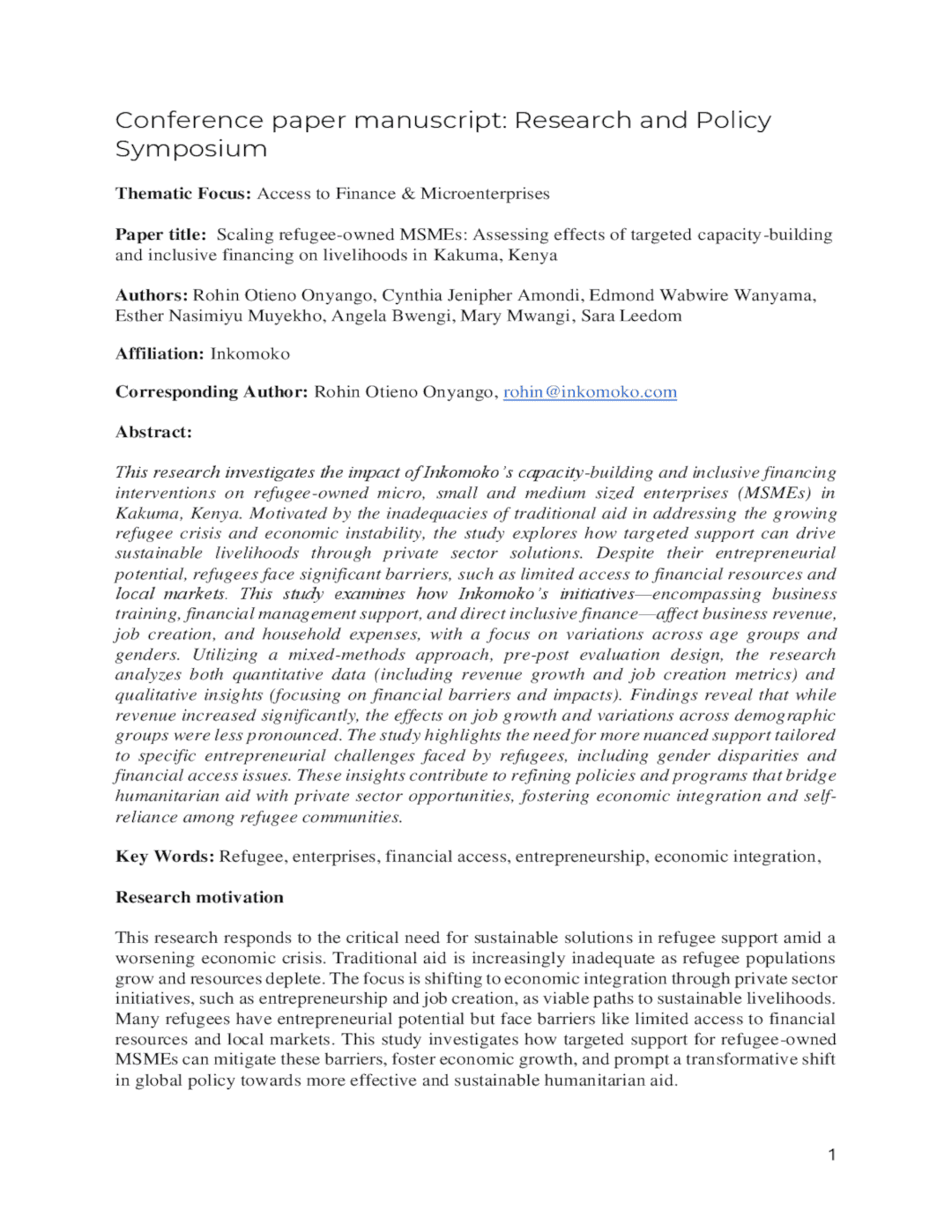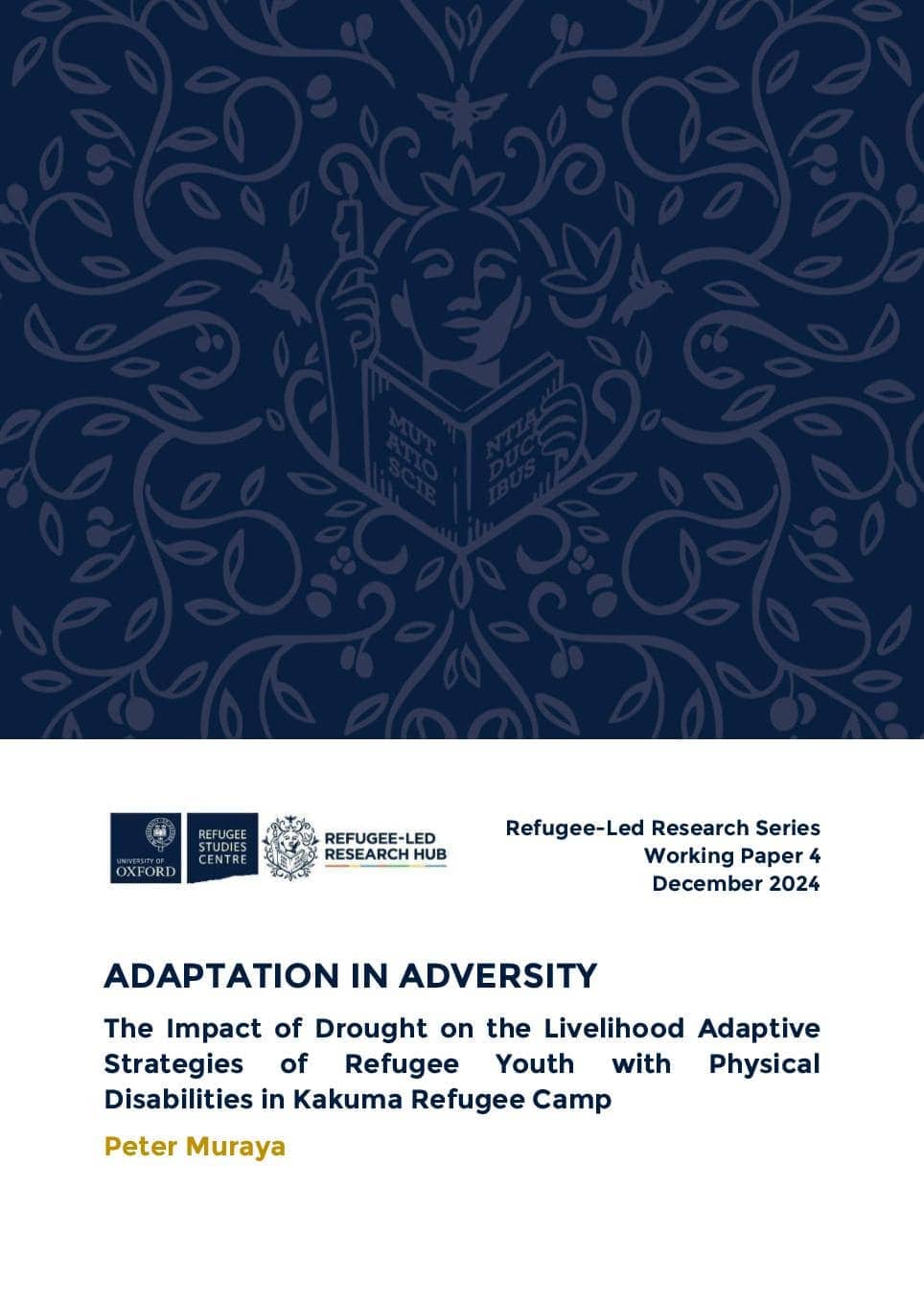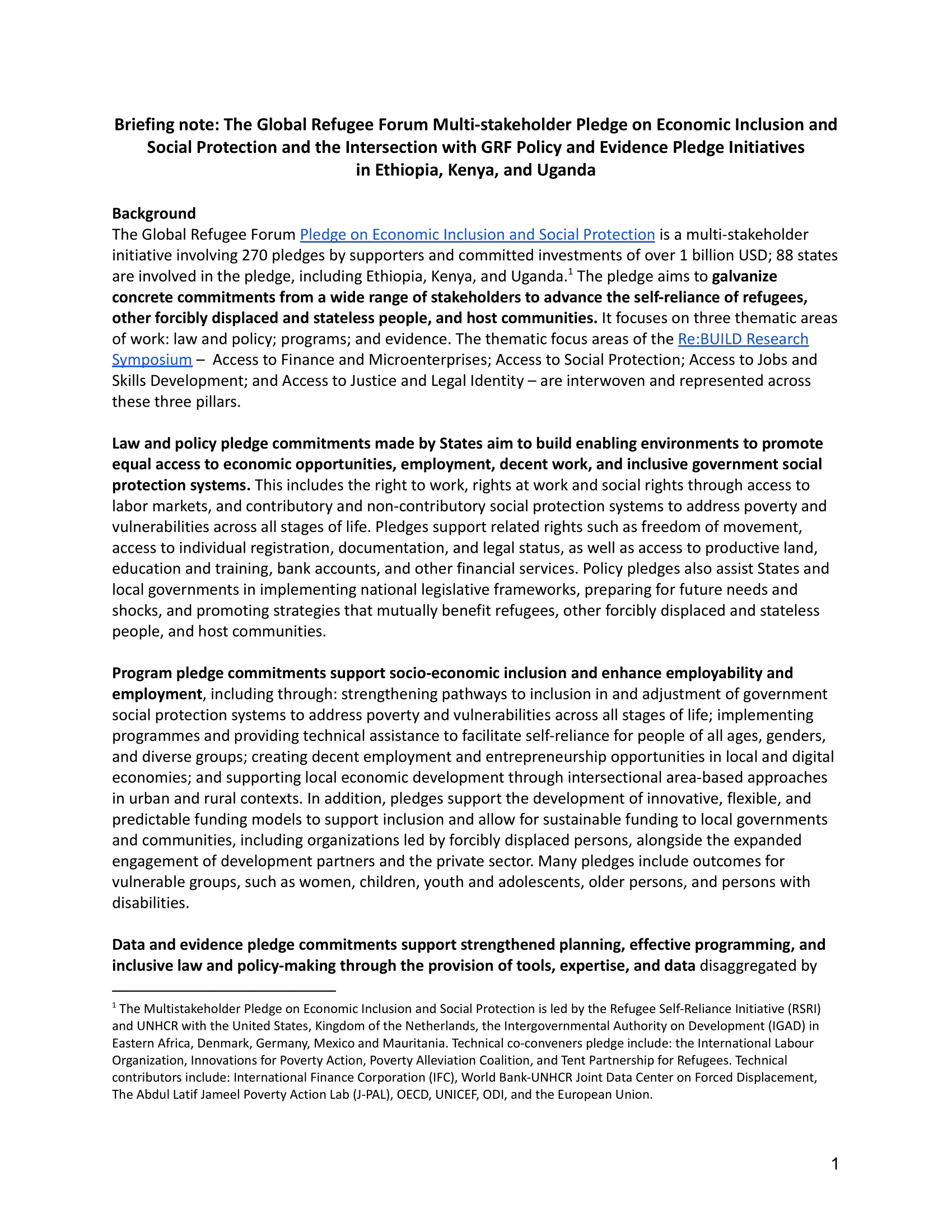Assessing effects of targeted capacity-building and inclusive financing on livelihoods in Kakuma, Kenya
Assessing effects of targeted capacity-building and inclusive financing on livelihoods in Kakuma, Kenya
This research investigates the impact of Inkomoko’s capacity-building and inclusive financing interventions on refugee-owned micro, small and medium sized enterprises (MSMEs) in Kakuma, Kenya. Motivated by the inadequacies of traditional aid in addressing the growing refugee crisis and economic instability, the study explores how targeted support can drive sustainable livelihoods through private sector solutions. Despite their entrepreneurial potential, refugees face significant barriers, such as limited access to financial resources and local markets.
This study examines how Inkomoko’s initiatives—encompassing business training, financial management support, and direct inclusive finance—affect business revenue, job creation, and household expenses, with a focus on variations across age groups and genders. Utilizing a mixed-methods approach, pre-post evaluation design, the research analyzes both quantitative data (including revenue growth and job creation metrics) and qualitative insights (focusing on financial barriers and impacts). Findings reveal that while revenue increased significantly, the effects on job growth and variations across demographic groups were less pronounced. The study highlights the need for more nuanced support tailored to specific entrepreneurial challenges faced by refugees, including gender disparities and financial access issues. These insights contribute to refining policies and programs that bridge humanitarian aid with private sector opportunities, fostering economic integration and self-reliance among refugee communities.


